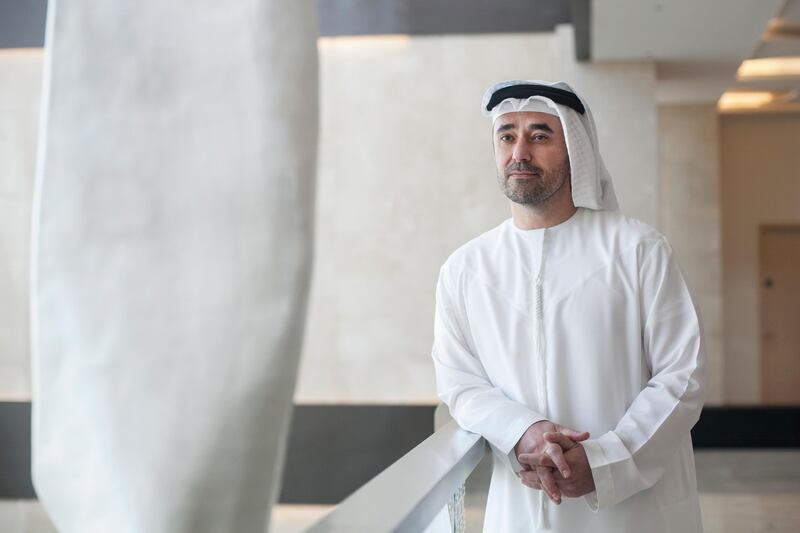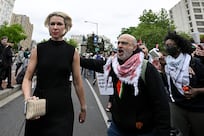Qatar tipped off Al Qaeda fighters about a UAE military operation in Yemen, enabling them to carry out a suicide bomb attack injuring Emirati soldiers, according to a senior UAE diplomat.
Omar Ghobash, the UAE’s ambassador to Russia, told BBC's Hardtalk programme that the discovery of the incident was among the factors behind the decision by the UAE and its allies last month to sever diplomatic, trade and transport links with Qatar over its support of extremist groups.
Mr Ghobash spoke of the attack in the programme broadcast on Thursday when he was pressed on what evidence the quartet had that Qatar had supported terrorism.
He told presenter Sarah Montague that UAE forces were hunting Al Qaeda in Yemen, alongside Qatari forces, when they were hit by four suicide bombers, resulting in Emirati casualties.
"We have had Emirati soldiers dying as a result of Qatari activities," says UAE's @OmarSaifGhobash pic.twitter.com/gORHGMnjf9
— BBC HARDtalk (@BBCHARDtalk) July 20, 2017
"We were in the process of engaging with Al Qaeda, the Qataris were alongside us,” Mr Ghobash said. “We as a government have information, that our Qatari allies informed Al Qaeda of our precise location and what we were planning to do and we then received four suicide bombers at our door. We had a number of soldiers that were injured.
"We have had Emirati soldiers dying as a result of Qatari activities."
Mr Ghobash said evidence of Qatar’s support of terror groups included voice recordings and video evidence picked up in the field.
“Everybody knows Qatar has a close relationship over the past few years with Jabhat Al Nusra,” he said, referring to Al Qaeda’s Syria affiliate
The evidence includes, “known individuals in Qatar giving instructions to known individuals whether it's in Yemen, Libya or in Syria on carrying out certain acts.”
________________________
Read more:
Arab countries' six principles for Qatar 'a measure to restart the negotiation process'
[ Doha must negotiate its way back into the fold or face years of isolation ]
________________________
Before the quartet's June 5 decision to boycott Doha, Qatar had troops deployed as part of a Saudi-led coalition, which is backing Yemen’s legitimate government against Iran-allied Houthi rebels.
Qatar’s involvement in Yemen was ended by the Arab coalition when the boycott started.
The UAE has played a leading role in both the campaign to defeat Houthi rebels fighting the government and operations against extremist groups in Yemen’s south.
Qatar's minister of state for defence Khalid bin Mohammed Al Attiyah on Wednesday said Qatari troops had never been inside Yemen's borders, saying instead they had been deployed as part of the coalition to help defend the Saudi side of the border.
The minister told Turkish website TRT World that Qatar had felt "obliged" to joing the Arab coalition in Yemen.
On Thursday, a quartet statement clarified its position and what it expects from Qatar for any progress to be made in mediating the crisis.
The statement referred to a briefing on Tuesday in New York, in which Reem Al Hashimy, UAE Minister of State for International Cooperation, said time had run out for Qatar to change its ways and that action was needed urgently to “put out the fire that Qatar has been fuelling”.
Abdallah Al Mouallimi, ambassador and permanent representative of Saudi Arabia to the UN, said any lasting solution would have to come from the Gulf region but that Qatar had so far failed to provide any meaningful engagement over the list of specific demands made by the four Arab countries last month.
Mediation of the crisis would have to be within the framework of six principles laid out including a commitment to combat terrorism and extremism in all its forms, the statement said.
Lana Nusseibeh, ambassador and permanent representative of UAE to the UN, said that Qatar needed to understand that there was no going back to the “status quo” before the crisis.
“There is no room for Qatar in the GCC if they have a different standard for what ‘terrorism’ is,” she said.





